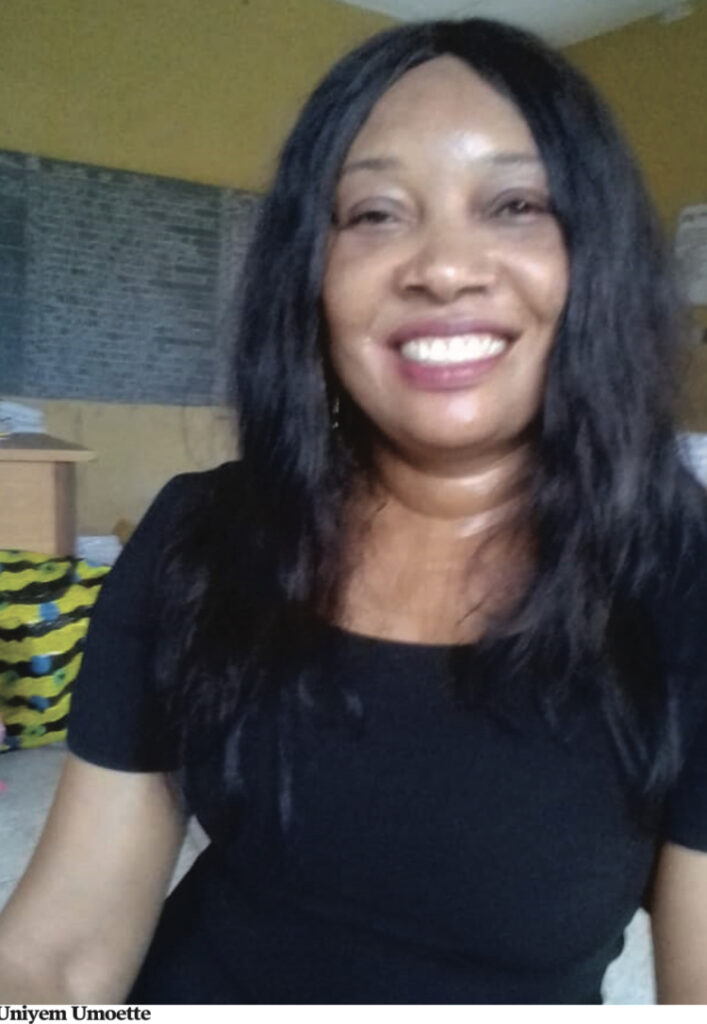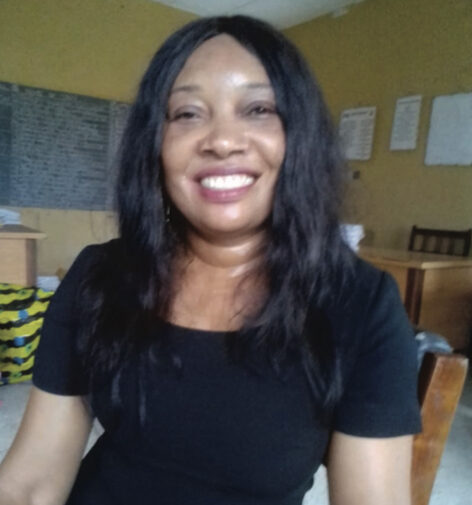UBEC Mandate is for Public Schools Only-Umoette

In this interview with Okey Unegbu, the Abia state Coordinator of Universal Basic Education Commission, UBEC, Uniyme Umoette, bares her mind on the mandate of the Federal Government agency and the capacity-building training going on in Abia State.
To someone who is not very familiar with your agency, how will you describe the mandate of the Universal Basic Education Commission (UBEC) in Nigeria?
The Universal Basic Education Commission is a Federal Government agency and has one mandate: to deliver basic education to Nigerians. So, we intervene in basic education in schools, especially the early childhood development, the primary school. We are into everything that has to do with basic education. We intervene in several areas. That is our mandate and one of them is this capacity building training on Jolly Phonics we are organizing now.
Who are the people you are training?
We are training the head teachers in Abia state, the ECCD. By this, we mean Early childhood Care Development teachers, some persons call them nursery teachers. We are training them. We are training Basic one, Basic two and Basic three teachers.
We are also training the officials; people that will go to monitor what these teachers are doing in the various schools.
You said the training is on Jolly Phonics. What is it all about?
Jolly Phonics is a fun way of writing and reading. We have a situation in this country where Children even in secondary schools are unable to read and write. But UBEC found this program and saw that it was helpful, yielding positive results for Children to be able to read and write and they adopted the program. So, basically, Jolly Phonics helps the child to read, write and speak. They are different ways to help them, they have songs, tell stories with sounds which help the child to remember. Telling stories, singing for them, these stick in a child’s brain. That is what Jolly Phonics is all about.
Do you have provision for teachers in private schools to be trained?
Our mandate stops with government schools; that is, public schools.
How many participants are you training and how many days will the training last?
We are training 2675 participants. We started on Monday, with this set of trainees and we will be rounding up in three days time. For the Head teachers, this is their first time that they are being exposed to the Jolly Phonics program and I tell you, they are very excited with the level of learning and achievement. We have recorded success with them, so I commend them. We have attained 80% success so far.
Would you say that Abia State Universal Basic Education Board (ASUBEB) is working in line with the UBEC policies?
Yes, they are. However, there have been gaps in ASUBEB before, but for the past two years now, they are matching up and have covered those gaps. They are almost coming up to where we want them to be and, in this training, UBEC is in partnership with the ASUBEB and the Universal Learning Solution.
What is your charge to the participants?
I charge the participants in this training to ensure that they impart their knowledge to the learners and their colleagues as well. I think it is one thing to learn and another thing for you to impart. It is not enough for them to come and be trained; we are expecting them to go and train not only the learners but also their colleagues who are not here for this particular training.
Does UBEC intend organizing similar trainings in future?
The training is a continuous process. If you ask them, some had been trained before now. another set is being trained; that means, we train them every year. It is a continuous process.
What is your message to government?
I call on the Abia State Government to continue to support the program outside the UBEC fund. The government can come in partnership with the board so that we will be able to have a larger turn out, so that we will have child in Abia, being able to read, write and speak very well.
Your message to the children.
I want to appeal to the children to also practice whatever they are being taught, for them to be useful to the community and the nation. Education for all is the responsibility of all of us, including the learners. So, they have responsibility, not just to learn, but also to understand what they learn and put them into practice.

